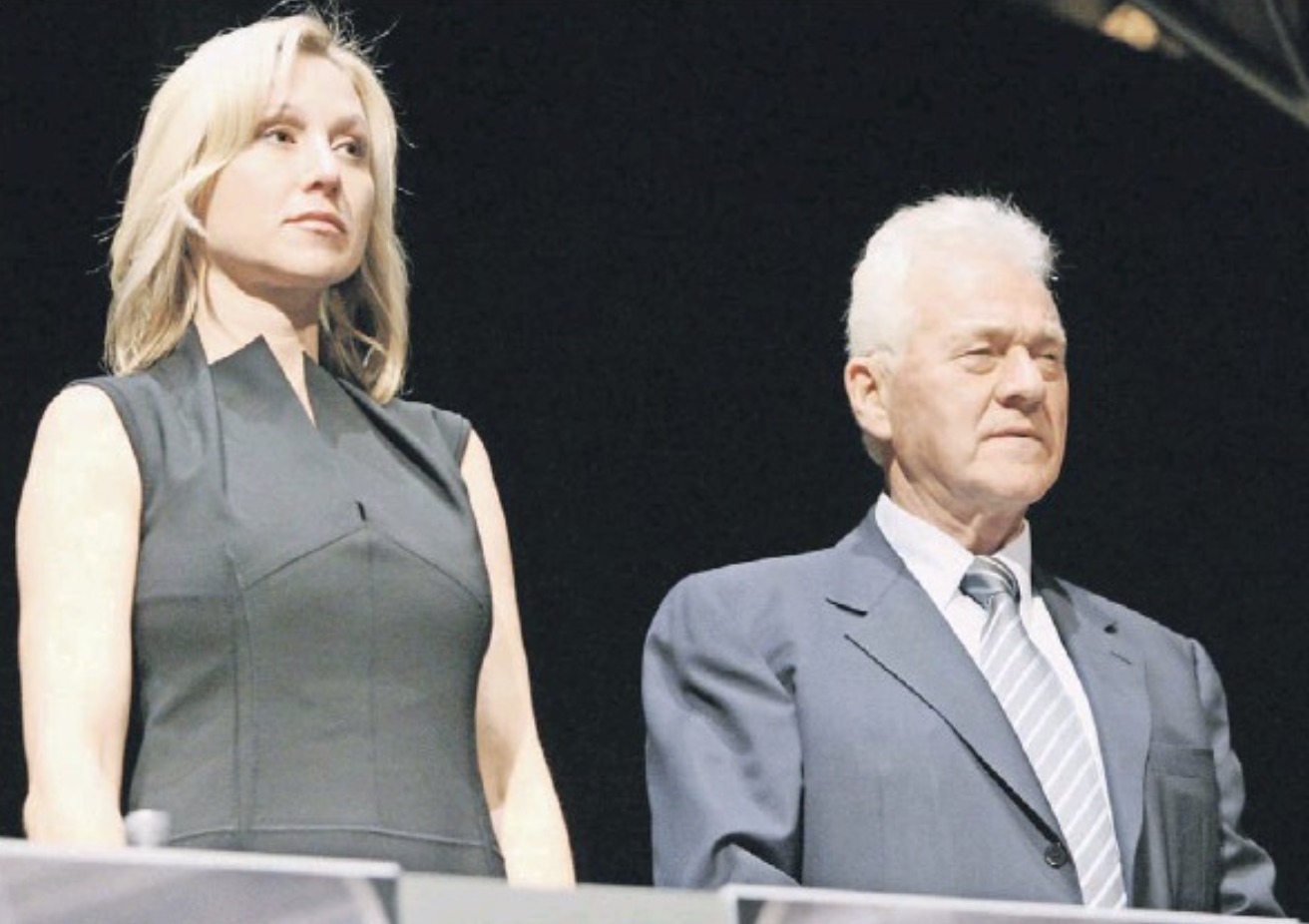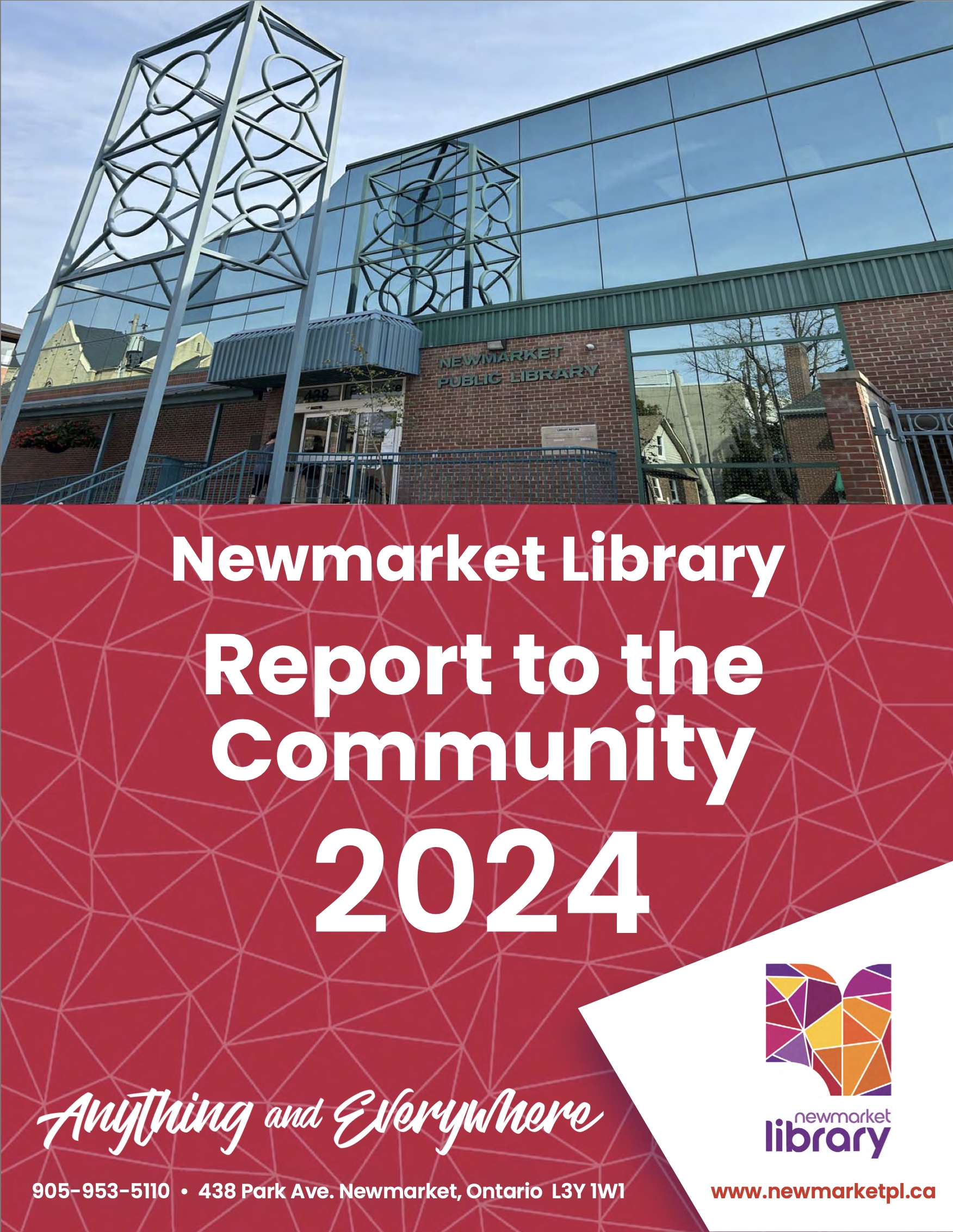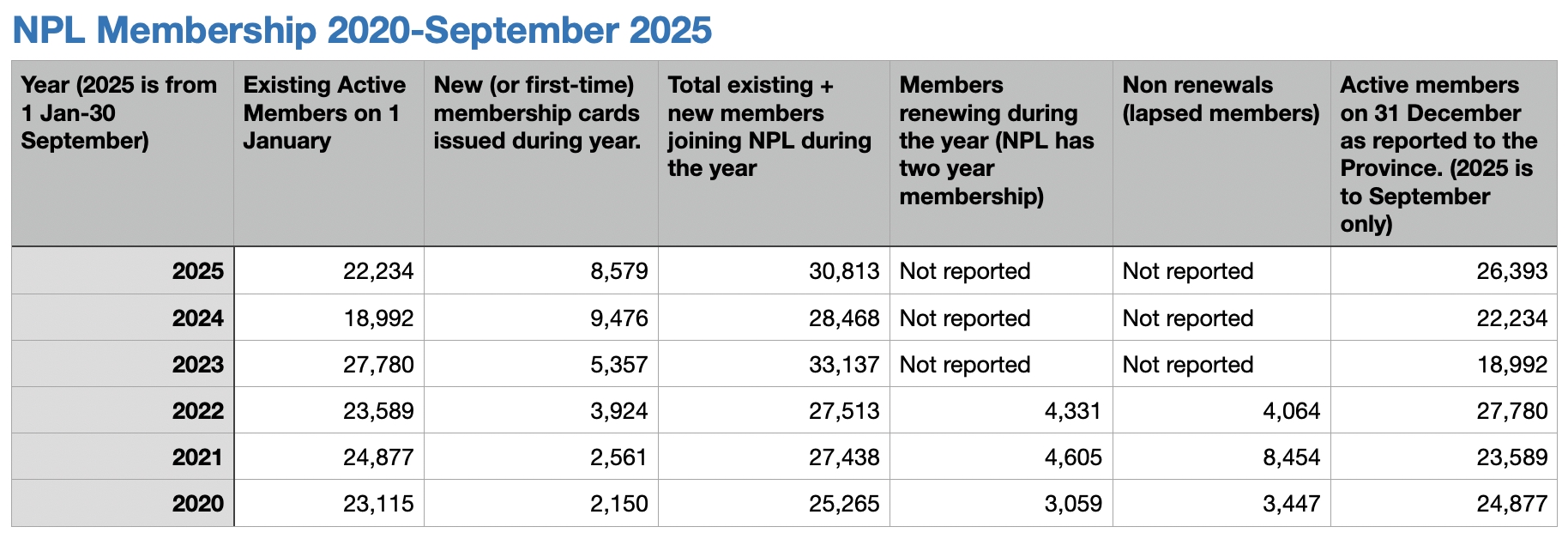- Details
- Written by Gordon Prentice
I suspect only a handful of people in Newmarket have ever heard of Robert Jenrick – until today the Shadow Minister of Justice in the UK’s Conservative Party. 
But in Britain his defection to the Reform Party, led by the fawning Trump sympathiser, Nigel Farage, is the big political news story of the day.
Jenrick says he won’t resign and trigger a by-election.
He should.
Imploding
The Conservatives - once the UK’s most successful political party if measured by its length of time in office - is now imploding. A growing number of Tory MPs have abandoned the Party and are being welcomed into Reform by Farage, its populist beer swilling, cigarette smoking leader.
Here in Canada we also have regular instances of MPs swapping parties while refusing to face their voters in a by-election to see if they agree with the decision.
In November 2025 Chris d’Entremont the MP for West Nova / Acadie-Annapolis (Nova Scotia) crossed the floor from the Conservatives to the Liberals. He was swiftly followed by Michael Ma — the Conservative MP for Markham–Unionville (Ontario) – who joined the Liberals last month taking Mark Carney within striking distance of getting a majority in the House of Commons.
And, of course, here in Newmarket-Aurora, Belinda Stronach famously crossed the floor to the Liberals in 2005 a year after she had been first elected as the riding’s Conservative MP. (Photo: Belinda and Frank Stronach in 2008)
Party swapping happens all the time. (Even dumped candidates do it.)
Quaint Assumption
The right thing to do, then and now, is to resign and seek a fresh mandate from the voters under your newly acquired Party affiliation.
The fact that defecting MPs cling on without facing the voters rests on a quaint assumption they are elected for their sterling qualities as individuals and not as a result of their Party affiliation.
The practice in Canada mirrors the position in the UK as described in this note from the UK House of Commons Library in 2014:
There are no rules requiring the resignation of an MP who leaves one political party for another. A convention that the Member changing parties does not resign to fight a by-election accords with the arguments of Edmund Burke in the late 18th century. This MP, himself a rebel in a number of policy areas, considered that a Member was a representative rather than a delegate.
Historically, the Commons has acted on the principle that all Members of the House of Commons are individually elected, and voters put a “cross against the name of a candidate”. While decisions on candidates may be affected by their party labels, MPs are free to develop their own arguments once elected, until it is time to face the voters in the next general election.
In the UK in 1872 ballot papers were introduced for Parliamentary elections for the first time showing the names of the candidates along with any descriptions they provided such as their profession. But there was no Party label. Indeed, the Representation of the People Act 1948 explicitly forbade candidates from using Party labels. This was changed in 1969 when the Party name could be included.
Party Labels on Ballot Papers but only from 1970
Here in Canada, it was only in 1970 that a candidate’s Party could appear on the ballot paper.
But we’ve now had 55 years of electing candidates identified by their Party colours or as independents. Personally, I believe the time is long overdue for us to change the law to require a by election when an MP swaps parties and crosses the floor. But this is easier said than done.
In 2011, NDP MP Mathieu Ravignat tried unsuccessfully to amend the Parliament of Canada Act using the Private Member’s Bill route. He explained:
The bill provides that a member's seat in the House of Commons will be vacated and a by-election called for that seat if the member was elected to the House as a member of a political party… However, the seat will not be vacated if the member, having been elected as a member of a political party, chooses to sit as an independent. 
Predictably, it was defeated by 181-91. To stand any chance of success the Government would have to bring in its own Bill and I cannot see that happening any time soon.
In the meantime, do we just shrug our shoulders and grin and bear it?
Commons Majority
Would it be OK for the Carney Liberals to get a Commons majority which rests on Conservative defections?
It could happen. Pierre Poilievre's leadership review will be held in Calary at the end of the month and while there won't be a stampede out of the Party (sorry) there could be one or two disgruntled and disaffected Conservative MPs changing sides.
Conservative MPs understand Mark Carney. They find him capable. Like he knows how to run the shop.
Courage
But why can't MPs who defect from one Party to another have the courage of their convictions and resign from the House of Commons and fight a by-election under their new Party banner?
The answer I've heard a million times before is that they haven't changed. Their Party has.
Fair enough.
But what better way to test that proposition than in a by-election?
This email address is being protected from spambots. You need JavaScript enabled to view it.
- Details
- Written by Gordon Prentice
America is a mafia state.

No point beating about the bush.
The graphic posted on X on 3 January 2025 by Katie Miller, wife of the Don’s consigliere, Stephen Miller, makes it clear Trump wants Greenland sooner rather than later.
Marco Rubio is scheduled to meet the Danes/Greenlanders on Wednesday (14 January) to make them an offer they can’t refuse.
But what if they say no?
How will Rubio react?
Tyranny
It is as plain as a pikestaff they don’t want to sell. The Greenlanders are content with their centuries long association with Denmark. They probably like their free healthcare from cradle to grave and don’t want to swap it for the American alternative. And they don’t want to be absorbed by a state morphing into tyranny before our very eyes.
If they call Trump’s bluff he will be upset but he has a short attention span and will be distracted by any number of other issues on his plate. The ballroom perhaps.
Over the years the United States has gobbled up millions of acres of land once in the ownership of others. There was the Louisiana purchase from France in 1803; Florida from Spain in 1819; the Gadsden Purchase from Mexico in 1853; Alaska from Russia in 1867 and the Danish West Indies (now the US Virgin Islands) in 1917. And, of course, there was a bid to buy Greenland in 1946 but that went nowhere.
But the Danes and the Greenlanders are resolute. They don’t want to sell whatever the inducements.
Trump told the New York Times that ownership of Greenland was
“psychologically important for me”.
He says the increased presence of Chinese and Russian ships near Greenland prompted him to act. The Danish political daily Politiken says there is absolutely no evidence of this.
EU Membership
I am rather taken by the suggestion from the former Vice Chancellor of Germany, Robert Habeck, that the European Union should offer EU membership to Greenland. I am not entirely sure how that would work in practice but it would certainly send all the right signals to the White House.
I have been wondering what people of Danish origin here in Newmarket feel about this. Unfortunately I don’t know where they are so I can’t have a coffee with them.
Totalitarian
Ideally, they would organise a demonstration outside, say, the Old Town Hall which featured a few years back as a Gilead fertility clinic in the Handmaid’s Tale. That would be a suitable totalitarian backdrop. I’d join them.
The last census in 2021 tells me the Town had 380 people of Danish ethnic or cultural origin. 75 had a knowledge of Danish and 40 had Danish as their mother tongue.
In my head I can hear them say:
Grønland er ikke til salg
Greenland is not for sale.
This email address is being protected from spambots. You need JavaScript enabled to view it.
Update on 14 January 2025 from Politiken: Greenland chooses Denmark, the EU and NATO
- Details
- Written by Gordon Prentice
The RCMP investigation into the Ford Government’s Greenbelt scandal is now well into its third year. Why on earth is it taking so long?
On 24 October 2025, the Toronto Star’s excellent Queen's Park reporter, Robert Benzie, told us:
“…former housing minister Steve Clark, former business minister Kaleed Rasheed, and Clark’s former chief of staff, Ryan Amato — have not been interviewed by police.” (click “read more” below to read the whole piece.)
This long delay in completing the investigation suggests it is very complex. Even so, can't they get a move on?
Fading memories
With the passage of time memories fade. Other things being equal, you want to capture recollections when they are still fresh in the mind. Important details can disappear.
I compiled a timeline of the local Greenbelt controversy beginning in 2019 and running through until 5 November 2024 – over a year ago. So things are getting fuzzy round the edges even for me. And I chronicled the saga in great detail.
I was blogging about the threat to the Greenbelt over seven years ago.
Steve Clark and his reprimand
Since then we’ve had Ford’s policy reversal, the Auditor General’s report and the report of the Integrity Commissioner which admonished the Housing Minister, Steve Clark.
The motion to reprimand Clark as recommended by the Integrity Commissioner sat there on the Order Paper, month after month.
The Ford Government never brought the Commissioner’s recommendation forward for debate and a vote.
The Second Southlake
Greenbelt land on our doorstep in the Municipality of King had been floated as the possible site of a second Southlake – which was planned to be an acute hospital.
Years on, Southlake is still heroically trying to find and finalize the second site it so desperately needs.
By messing around with the Greenbelt Doug Ford and his apologists like Dawn Gallagher Murphy put back the prospect of a much needed second Southlake by years.
This email address is being protected from spambots. You need JavaScript enabled to view it.
Update on 29 December 2025: From the Toronto Star: For one plot of land the Greenbelt scandal rages on...
Click" read more" below for Robert Benzie's article in the Toronto Star.
Read more: Whatever happened to… the RCMP investigation into the Greenbelt scandal?
- Details
- Written by Gordon Prentice
I believe my deputation to the Library Board last night was only the third in 11 years. I told the Board that felt like a big deal to me.
It’s not something people do every day. And I only did it because I couldn’t get a meeting with the Library Chair, Darryl Gray, to discuss with him privately my concerns about library statistics. That was eight months ago. I tried again last month to talk to him one-to-one but my emails didn’t get through.
Broken Portal
The Portal in the Library Website (which is ostensibly for the public to contact the Board) was out of commission for over two months and nobody noticed.
On 30 September 2025 the Chief Executive assured me it had been fixed and it hadn’t. My emails just disappeared into the ether. That’s the background.
I spent a lot of time putting my deputation together. The material is posted here and here.
No Ambushes
When I met my Ward Councillor, Trevor Morrison, earlier this month I stressed I had no wish to ambush the Board or its Chief Executive. So I made sure they all had the paperwork well before the meeting.
So I found it very dispiriting and a bit disheartening that after I finished speaking and invited questions from the Board they all remained silent and expressionless, like Easter Island statues, except for the Board Chair, Darryl Gray.
This is how it went:
Library Chair Darryl Gray: “Any questions from the board to the deputant on what he presented this evening? We also have a staff report that we'll be tabling in a minute for any questions of staff.
Me: “But this is the only time the Board will hear from me…. I spent quite a long time on this, and I would appreciate if anyone has any questions to ask them, and I'll do my best to field them.
No pressure, of course, but this is my chance to respond to any questions you may have."
Darryl Gray: “I have one question. I just want to clarify something. So you attest that Tracy changed the provincial definition of a library card holder.”
Me: “Yes”
Darryl Gray: “She didn't actually change the provincial definition. We're reporting a specific way to the province. And my question is this, what was the provincial response to your email about that?”
Me: “Well, the provincial response is complete gobbledegook by the civil servant, Douglas Davey. He basically said - and this is in the report that the Chief Executive has tabled - he said:
Yes, you can satisfy the active cardholder definition by using your card once in two years, but if you don't use your card, that also satisfies the provincial definition.
Now it's in the report in front of you, and that is quixotic. It is bizarre, and I'm taking it up with the province because it's complete drivel.
But we don't know from the report that the Chief Executive has tabled what the question was that led to that risible answer. We don't know the date that the Chief Executive got in touch with Douglas Davey. We don't know the context.
We've just got this bizarre statement from the civil servant that you can satisfy the provincial definition by using your (library membership) card or not using your card. And as I said, that's just risible.”
Darryl Gray: “Any other questions of the deputant? We'll have the chance to talk about the report. Thank you.”
Newmarket Today covered the story this way.
This email address is being protected from spambots. You need JavaScript enabled to view it.
- Details
- Written by Gordon Prentice
Tomorrow (Wednesday 17 December 2025) I shall be taking a deputation to the Library Board. It's meetings are open to the public but are not streamed.

The agenda includes a report from the Chief Executive on Library Statistics.
Here is my commentary on it.
To: All members of the Newmarket Public Library Board
Deputation on 17 December 2025: The Conduct of the Chief Executive, Tracy Munusami
Commentary on CEO’s Report on Library Statistics (agenda item 6.1)
To recap. What action am I requesting?
(1) The Library Board and the Chief Executive should follow the definition of “active cardholder” as set by the Province. And the figure reported to the Province in the Annual Survey of Public Libraries should be included in the Library’s “Report to the Community 2025”
(2) The Chief Executive should report to the Library Board quarterly on membership renewals and lapses. The Board may wish to consider asking the Chief Executive for an annual report on the split between Newmarket and out-of-town (or non-resident) members and Library membership by ward. The Board has received such reports in the past. The latter at the request of Councillor Bisanz.
(3) The Chief Executive should be asked to give a presentation to the Board on the capabilities of Polaris to aid members’ understanding of what it can do.
Deputation Issue 1. Definitions. The “key issue” as set out in my Deputation is the definition of “active cardholder”. Earlier this year, the Chief Executive changed the Province’s definition of active cardholder and substituted her own – without approval of the Board or, so far as I know, the Library Board Chair. I am asking the Board to reinstate forthwith the Provincial definition.
The Chief Executive says
“systems limitations prevent capturing all form of library service in one integrated platform”.
If that is the case, then she should count what can be counted and tell the Province what she cannot count – for example, members who use the library as a public space for study. Clearly, this does not require the use of a membership card.
She should also tell the Province that she chooses not to track members signed up through outreach and that it is impossible, therefore, to determine when the member becomes an “active cardholder” according to the Provincial definition. The CEO believes tracking new members signed up through outreach is an invasion of their privacy. This is nonsense.
The CEO says the Ministry defines an active member as
“cardholders who have used their library card in the past two years”
and acknowledges that
“while this is a clear definition, system limitations make it challenging to fully meet this standard”. (My underlining for emphasis)
The answer is to follow the Provincial definition but with the caveats above.
The CEO relies on undated correspondence from Douglas Davey, a library services adviser in the Ministry, to help make her case. Unfortunately, we are not told what question or point he was answering. In any event, what we have is incoherent. Mr Davey is quoted as saying:
“We understand that Newmarket PL has opted to use the number of unexpired cards in its integrated Library System to calculate A1.14 Number of Active Cardholders.
“As you have set your cards to expire every two years then you are counting everyone who has used their card in the last two years as well (as) any patrons who have received a card in the last two years but haven’t used it in a way that is formally counted (eg participating in a drop-in program). We have no concerns with this method or the integrity of the data.”
This is gobbledegook. We now have a Provincial definition of “active cardholder” that requires a membership card to be used in the last two years. Or not used. Take your pick.
If we are to accept Mr Davey’s interpretation of the Provincial definition, we might as well use Ms Munusami’s definition: an active cardholder is a member with an unexpired library card.
If the Board is minded to adopt the CEO’s new definition then it should first seek an authoritative statement from the Province. If the Newmarket definition is to be the new template this will have Ontario-wide ramifications.
Deputation Issue 2. Membership renewals and lapses. 
On 4 July 2025 the Chief Executive told me:
“Retention is a focus this year.”
Despite this, the Library now no longer tracks membership renewals. And yet, paradoxically, data on renewals can be extracted as and when required.
In her report to the Board (page 3) she writes:
“Memberships remain active for two years and will expire unless the patron renews their membership in-person, on-line or over the phone. This figure is updated monthly and includes new sign-ups, renewals, on-going memberships, while removing expired memberships.”
The previous Chief Executive, Todd Kyle, reported monthly membership renewal figures to the Library Board for years. These were compiled manually. But now, despite using a “modernized” reporting system, we are asked to believe that renewals data cannot be generated.
The Board is told the Statistics Dashboard provides a broad overview of trends and progress in key service areas. But renewals and lapses are completely ignored. Wouldn’t a sharp decline in renewals and an increase in lapsed memberships be a cause of concern?
The CEO tells the Board on page 4 that:
“At present, Library staff are not aware of any method to extract renewal data from the Integrated Library System (Polaris)”
She adds:
“To confirm, the IT Department contacted Polaris directly to determine whether this functionality exists. Polaris has responded with:
“Polaris does not currently have a way to track or report on patron library card renewals.”
NPL’s Strategic Plan 2022-2025 confirms the Library
“uses Polaris (iii) ILS on virtualised machines and the system is stable. Library IT staff provide ILS management, technical support and staff training. NPL can consult with the vendor to review modules to enhance service by reducing inefficiencies.”
A count of cardholder renewals in any given period can be produced by providing parameters for expiration dates, registration date and patron status to any one of (a) the built-in Polaris staff client (how it describes its report generator); (b) the SimplyReports add-on or (c) basic Structured Query Language – all three of which are included in the Polaris packages for which the Library has subscriptions.
For example, SimplyReports:
“gathers data from the Polaris database, allowing you to create reports about your patrons, patron account transactions, holds, and items. SimplyReports provides you with information you would expect to find in the Reports and Notices feature in the Polaris Integrated Library System, yet is more robust and gives you more control. SimplyReports allows you to select the values, parameters, and format to create truly customizable reports.”
There are other software solutions out there such as Savannah by OrangeBoy.
Deputation Issue 3: The Chief Executive should be asked to give a presentation to the Board on the capabilities of Polaris to aid members’ understanding of what it can do.
The Chief Executive says that:
“At the time of writing this report, Library staff are actively exploring an option to accurately track and report expired cards on a monthly or quarterly basis.”
This could provide the basis for a presentation along the lines I have proposed.
The Chief Executive says that:
“As part of the next round of strategic planning the Library Board and staff can consider the capabilities of Polaris when developing or refining metrics for organisational performance. This will ensure that reporting expectations align with what the system can realistically deliver and support informed decision-making.”
Why should the Board wait that long? Why is it unrealistic to want information on membership renewals? For years the Board used to get that information as a matter of course.
We all want informed decision-making. But, clearly, the Board is flying blind.
Gordon Prentice
16 December 2025
The Chief Executive mentions NPL’s Strategic Plan 2022-2025. It is here.
Page 1 of 287